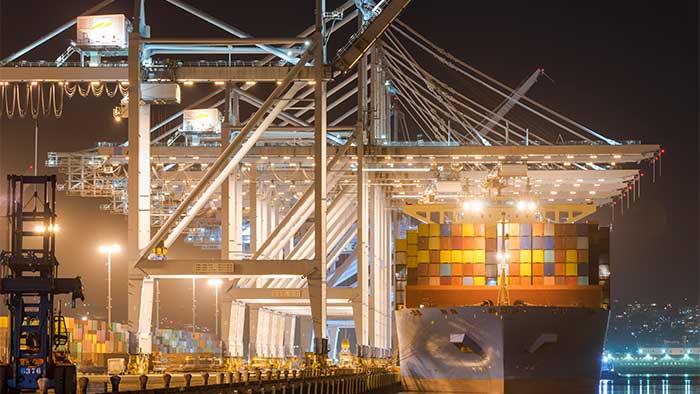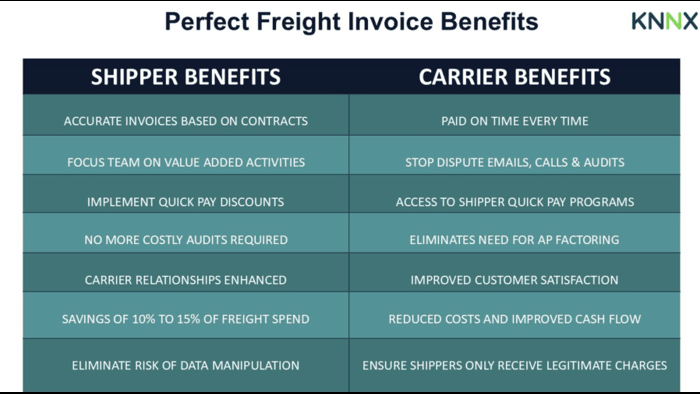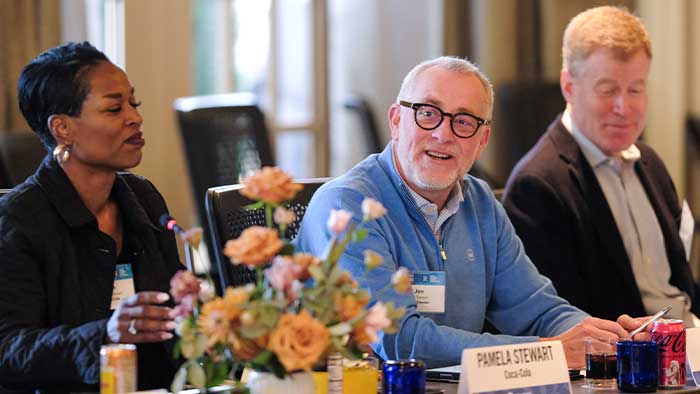All Eyes on California as Port Labor Negotiations Begin
- By [ Jess Dankert ]
- 05/13/2022
The PMA represents about 70 terminal operators and ocean carrier lines. The master contract, which officially expires on July 1, covers approximately 22,000 workers at 29 ports up and down the West Coast, accounting for about 44% of U.S. container freight traffic. The ILWU has a unique position as a “regulated monopoly;” while ports on the Gulf and East Coast are able to employ workers from other sources in addition to unions, West Coast ports must use ILWU labor.
Several items are on the bargaining table—including hours, wages, jurisdiction, healthcare, and working conditions. However, automation is expected to be the most contentious issue in the negotiations. PMA fired an early shot last week with the release of a study from the University of California at Berkeley, showing that not only do automated terminals have as much as a 44% productivity edge over non-automated terminals, but that they also racked up more dockworker hours. This data takes aim at the ILWU’s longstanding claim that automation destroys jobs. The ILWU has historically been opposed to automation, although ability to automate has factored into the master contract since 2008. RILA has long advocated for modernization and automation, as an essential element for U.S. ports to be competitive on the world stage.
Wages will be another topic of discussion. Dockworkers have kept the ports running virtually without interruption throughout the pandemic, helping to keep critical goods moving. More than half of ILWU workers already make over $100,000 a year; however, they’ve watched terminals and carriers rack up record profits since 2020. Due to pandemic-related demand surges, carriers have been able to manage capacity and charge soaring rates—resulting in retailers and all other shippers experiencing shipping costs as much as 1,000% higher than pre-pandemic levels.

Historically, contract negotiation periods have typically resulted in increased port congestion—ranging from slowdowns to a full shutdown that occurred in 2002. The slowdowns resulting from negotiations in 2014-2015 left an impact that took an estimated 8 months for the economy to recover. This year’s round of contract talks is even more high stakes—and high profile.
In an exclusive call with RILA members last month, PMA President Jim McKenna highlighted the unique circumstances heading into this round: “These days, the general public actually knows the importance of the ports and supply chain—and a slowdown will get a lot of attention very quickly on the eve of midterm elections.”
Against the backdrop of over two years of sustained supply chain disruption, advocating for a smooth negotiation and advantageous result has been a top priority for RILA. Consistent messaging on this point, publicly and in conversations with lawmakers and the Administration, has underscored the need to resolve the contract negotiations without causing further disruption to already-strained supply chain operations.
In March, RILA and the American Apparel and Footwear Association led 47 other major trade associations in a letter to the Biden-Harris Administration, calling for the Administration to encourage the PMA and ILWU to get started on negotiations sooner rather than later—and potentially to facilitate bringing the parties together if necessary. Soon after this industry letter, several Senators sent a similar message to the Administration. Lately, President Biden generally appears to be leaning in to his organized labor ties.
Though the negotiations are officially under a media blackout, all eyes will be on California as talks are finally underway. The RILA team will continue to monitor the process and will keep members apprised of any notable developments. For more information on this or other supply chain topics, please reach out to Vice President of Supply Chain Jess Dankert.
Tags
-
Public Policy
-
Supply Chain
-
Transportation and Infrastructure
-
Workforce



